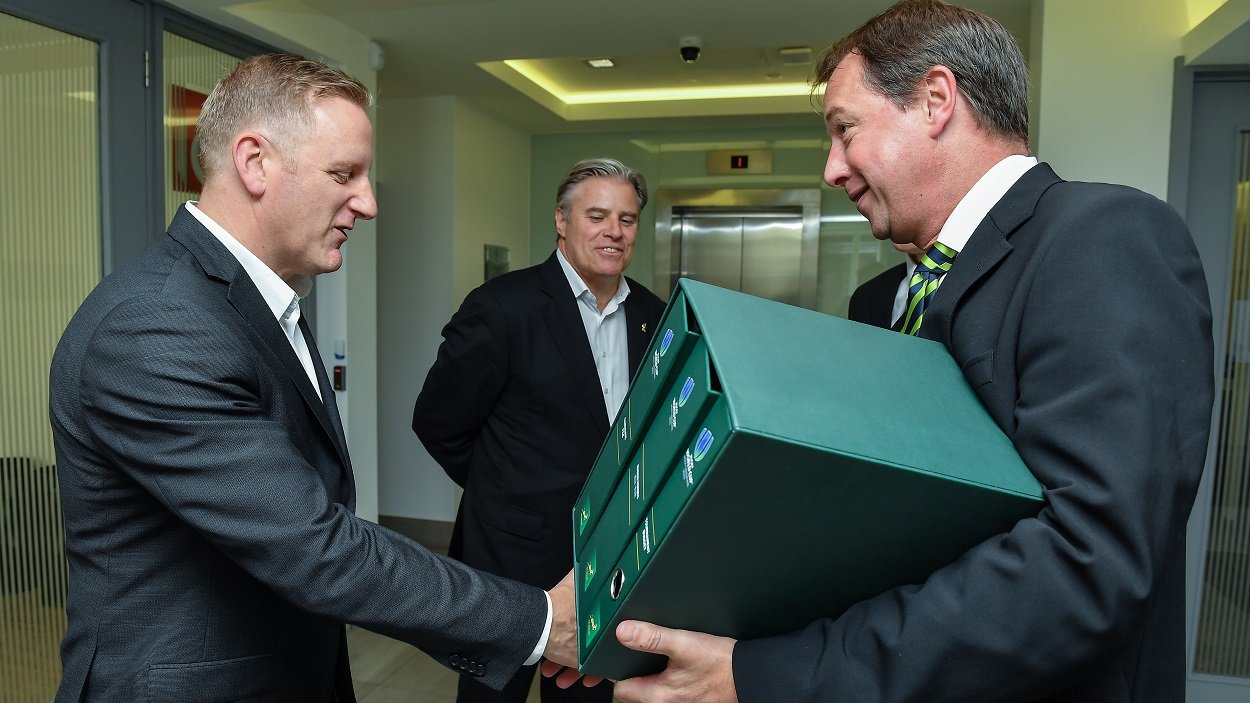RWC 2023: The State of Play – South Africa

After our profile on rival bidders Ireland, it’s time to turn our attention to the sole entrant from the Southern Hemisphere and see just what South Africa plans to offer in their bid to host the 2023 Rugby World Cup.
South Africa
Having last hosted the competition in 1995, South Africa have been unsuccessful in bids for the 2011, 2015 and 2019 tournaments. There will be many who feel that it’s about time for the Rainbow Nation to be given the honours again, rather than another European country. That being said, repeated unsuccessful attempts arguably indicate some systemic problems preventing South Africa fighting off competing bids. World Rugby (or the IRB as it was at the time) will likely have provided some feedback addressing why South Africa have failed in the past, so if they’ve addressed these issues then the experience of previous failure may actually turn out to be a good thing.
Indeed, South Africa’s bid manages to successfully argue both that they are long-deserving of a crack at hosting and that they have the expertise and experience necessary to do a good job. The FIFA World Cup in 2010 as well as a host of other sporting and cultural events means the infrastructure is in place, with the committee declaring that there will be no stadium developments required in order to meet specifications. Despite this, they still plan to invest £3.6million to install Grassmaster hybrid pitches at each venue in an attempt to ensure a safe and entertaining playing environment.

Player welfare is central to South Africa’s proposal, declaring their bid to be the most “player-centric” in history. Seemingly every specification in this regard set out by World Rugby has been beaten – training facilities are a maximum of 17 minutes away from designated hotels rather than the requisite 30 minutes, teams will be able to retain their base camps when travelling and of the teams that do have to travel for pool games, they will only do so once. The schedule, the facilities and the support on offer have all been designed to be as player-friendly as possible, and with World Rugby espousing their “Player Welfare” priorities recently, this could be an opportunity for some much needed good PR on this front.
The experience of supporters is of course just as important to the South African bid. A major selling point for travelling fans is the comparatively cheap costs in the country, with everything from accommodation to food and beer calculated to be significantly easier on the wallet than in France or Ireland. On the other hand, questions have been raised about affordability for South African citizens, so there’s a chance that organisers will be relying on overseas visitors to shift tickets.
This might be easier said than done however. Rightly or wrongly, South Africa still has something of a reputation security-wise, and with political unrest and governmental upheaval currently making global headlines, it may be tougher than hoped to attract supporters to the country. Organisers will point to the fact that the FIFA World Cup and other recent tournaments proceeded without major incident, but they will still need to alleviate potential concerns around safety if they can hope to sell enough tickets to deliver on their promised returns.
Speaking of the government, the bid team will be delighted to see a pledge of 2.7million Rand from Sports Minister Thulas Nxesi. This is a huge turnaround from the start of the hosting campaign, when the government banned the rugby union from bidding in 2016 due to its failure to provide enough opportunities for black players. An agreement has clearly been reached, but World Rugby will be keeping a close eye on the potentially turbulent political situation and are unlikely to react well to any signs of instability or risk.
As for the union itself, South Africa is in a very strange position currently. The issues with the Super Rugby franchises didn’t help perceptions at a club level, and internationally questions are also being asked. Formerly one of the biggest sides on the global stage, mixed performances on the pitch coupled with off-field issues mean that the Springboks are no longer truly a superstar team. They still have the name value, but anyone who’s followed their performances in recent years will know that they’re a shadow of the side they once were. Despite that, they still keep turning in enough good performances to indicate the potential to return to their previously heady heights, and an opportunity to have the World Cup in their own back yard may bring some much needed focus and public support to the team.
After pushing into new territory with Japan 2019, World Rugby may be inclined to return to a more traditional setting for the next edition of the tournament. South Africa has a rich rugby history and some truly beautiful settings, so the tournament would be guaranteed some compelling narratives and awe-inspiring atmosphere. The bid may lack Ireland’s promise to help expand rugby into North America, but the opportunity to stabilise the sport in one of its former superpowers may be tempting for World Rugby due to the increasing divide between the All Blacks and the rest of the Southern Hemisphere.
Verdict:
South Africa have exceeded even France by pledging £160million to World Rugby, and have emphasised the quality of the facilities and infrastructure for both players and supporters. However, World Rugby might consider political instability and the questionable state of the South African Rugby Union to mean the tournament is much more commercially risky than France or Ireland. The potential to rejuvenate the formerly mighty Springboks and return Rugby Union to its place at the centre of South African sporting culture will of course be tempting for the decision makers. South Africa currently sit second in the bookies predictions, but the late financial surge from France means the possibility of a return to Johannesburg is increasingly unlikely.































